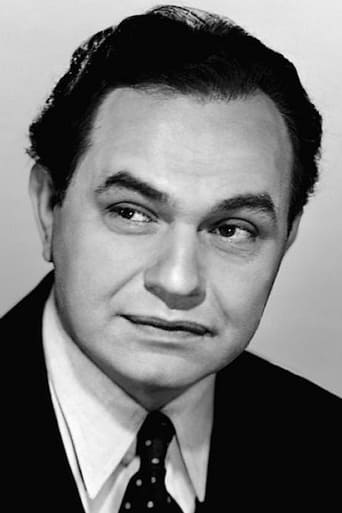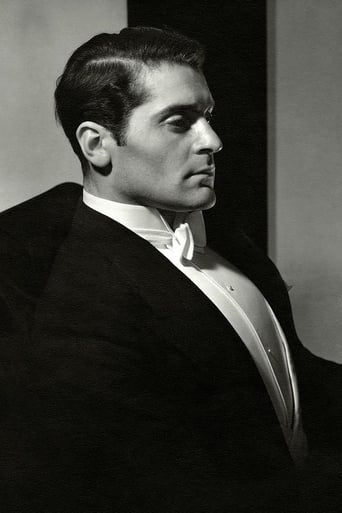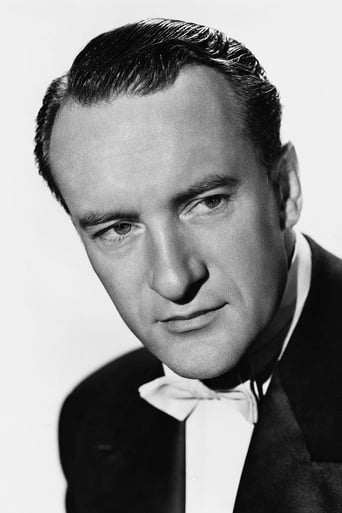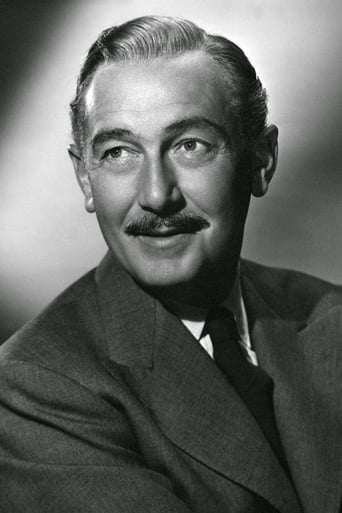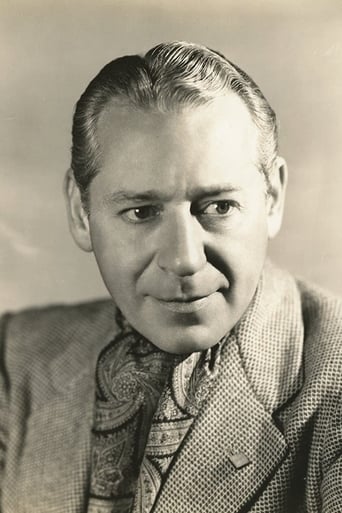Greenes
Please don't spend money on this.
Odelecol
Pretty good movie overall. First half was nothing special but it got better as it went along.
Humbersi
The first must-see film of the year.
Juana
what a terribly boring film. I'm sorry but this is absolutely not deserving of best picture and will be forgotten quickly. Entertaining and engaging cinema? No. Nothing performances with flat faces and mistaking silence for subtlety.
deschreiber
Based on a series of articles, then a book, "Nazi Spies in America," by ex-F.B.I agent Leo Turrou, who lost his job for writing, this is an interesting period piece. The dialogue has its clunky moments, especially when characters pause to speechify. But that was probably necessary as part of the propaganda of the time, when it was important to wake up America to the dangers of Nazism before Pearl Harbor. It was a time when too many voices were saying Hitler's was a European war and that America should keep out of it, and pro-Nazis like Charles Lindberg and the radio priest, Father Charles Coughlin, drew large audiences. Although there certainly were Nazi spies in the U.S., resulting in numerous convictions, at the same time it's worth noting that the direct threat to America was exaggerated in the film. In 1939-1940 Hitler was focused on continental Europe first, then Britain, and had spent little time thinking about America. But the existence of Nazi spies certainly justified setting off alarm bells across the country and an effort to determine just how serious the threat was. Again, the film's value is largely as a period piece.I do fault the script for portraying the spies as confessing and switching sides much too easily. Those moments struck me as highly unrealistic.The website of the FBI describes the spy cases on which the articles, book and film were based. The case of Guenther Rumrich, who attempted to obtain 50 blank passports by posing as the Secretary of State is described at http://1.usa.gov/SbtCWj, although the FBI describe him as "crafty" while in the film he appears as a fool. The FBI also admits its failure in the case, reporting that "four times as many spies had escaped, including the biggest fishes." Leon Turrou, the ex-agent who wrote the book on which "Confessions of a Nazi Spy" was based, fares very badly in the FBI account. Another case related to the movies was the Duquesne Spy Ring, involving 33 spies, described by the FBI at http://1.usa.gov/TcR74V.
SimonJack
"Confessions of a Nazi Spy" is an excellent film about real events. It's based on a true story and uncovered facts at a time when the whole world was on the verge of war. As such, it's also an outstanding piece of propaganda – indeed, a classic example of the beneficial use of propaganda. More on that later.Some of the reviews I've read give the impression that propaganda is all bad. Some imply that it's false or deceptive. Some don't like the fact that propaganda is or can be manipulative. But there are differences between propaganda and how it's used, and between it and outright lies and deception. World War II was a time rife with propaganda and with outright lies and deception. But, before looking at how it applies to this film, it would help to have a better overall understanding of propaganda.Propaganda is everywhere around us. It's in the ads we watch, listen to and read in the media. It's in the news media itself. It's in our history books and school courses at all levels. It's in the government programs created by Congress. It's in the political rhetoric of our elected officials. Indeed, it's a proof of freedom of speech and of the press. The propaganda this refers to is the category of facts, ideas, and information that is used widely to explain, promote or encourage support for programs, positions, efforts, projects and products. In this vein, propaganda helps inform the public about something. It may help a person make up his or her mind to support or oppose a policy or proposal. It may help a shopper decide which products or brands to buy. It helps people understand how a government program works. That's what most propaganda is and does. But, there is another aspect of some propaganda, and that has to do with spreading rumor or making allegations about some one or thing. This is a malicious use of propaganda, and it fits in the realm of slander. It's used to attack, belittle or discredit some one or something in the eyes of the public. It's always negative. Curiously, no definition of propaganda states that it is ever outright deception and lies. So, there is a clear distinction between propaganda, which is not wrong or bad in itself, and lies or deception which are wrong.Now, back to this film. It's based on a true story and events. It covers a great deal of information about the German-American Bund that many – indeed, most Americans then probably did not know. It exposed the real malicious and oppressive designs and intentions of the Nazis. This was at a time when many Americans were pacifists and didn't want to see a repeat of WWI. And, this film showed very well the deliberate Nazi plan to use the natural, healthy pacifism, as a means to keep America divided and out of the war. For the first time, many Americans found out what the Nazi party was really up to, and how it was a threat to our own country. "Confessions" shows that the Nazis used outright lies and deception to cover up the truth of their operations. That was not propaganda, but misinformation. Toward the end, we saw that they planned to use rumor, allegation and slander in propaganda. This movie doesn't include several of the sabotages that Nazi agents carried out in some eastern U.S. cities. And we learn in the film that before that time, the U.S. did not have a counter-intelligence agency to deal with such insurgency.Who could argue that the conclusions of the film, and the resulting security measures and efforts were not right? The government, and all Americans, learned about the dangers of "loose lips" – that can sink ships. So, as a propaganda piece, this film alerted the public to be cautious and wary. "Confessions" is indeed an historical film. It was the first real intelligent, fact-based movie that warned about the designs of the Nazis. And its value and importance became clear right away when organized Nazi efforts tried to stop the film's release with demonstrations in some eastern cities.
bkoganbing
Confessions of a Nazi Spy was made anticipating the fact that American involvement in World War II was inevitable so it is better to know thy enemy. Based on FBI files, Confessions of a Nazi Spy was a story about both the German American Bund and its links to the Nazi regime and the espionage and sabotage it tried to do.The film is done in a documentary style, more popular over at 20th Century Fox than at Warner Brothers, with films like The House on 92nd Street and Calling Northside 777 as examples of the style.The Nazis shown here are straight up villains be they respected physician Paul Lukas or disgruntled plebeian Francis Lederer. I think Lederer modeled his character on Bruno Hauptmann, the Lindbergh baby kidnapper and maybe the most unpopular man in America at one point. Hauptmann's appearance and voice were in newsreels to study and isn't it ironic that the man he wronged became a spokesman for appeasement.On the other hand Edward G. Robinson is quite the stand up hero as the FBI agent investigating the Bund. Robinson was one of the bigger anti-Nazi activists in Hollywood and was proud to be included in what he considered a very important message.No subtlety used in this film. For those not interested in the anti Nazi message, Confessions of a Nazi Spy does succeed on the entertainment level as well. But I will say that playing America the Beautiful over the end credits was a bit much even for audiences in 1939.
krorie
With the Nazi Party now illegal in Germany but still legal in the United States with several active members, it's not surprising that the American Bund had such a large membership in 1939 when Hitler was at the height of his power and was rapidly augmenting the Third Reich with territory stolen from his neighbors. Since the United States was officially neutral at the time, it is surprising that this film received such a wide distribution. One must remember, however, that FDR early on recognized the threat to world security, including the danger to our interests, from Der Fuher. He was in the process of asking Congress for the approval of Lend Lease and worked closely with Winston Churchill following the fiasco of the Munich appeasement which ousted the incompetent Neville Chamberlain.The movie turns out to be somewhat of a mixed bag. There are really three main elements composing the film. From time to time there is a documentary-style narration by John Deering of actual events taking place in Europe such as the Anschluss; second, there is the main story which is well written, directed, and acted concerning a spy network in the United States attempting to lure the minds of German Americans into the Nazi trap with help from the Gestapo, Hitler's private police force of bullying goons; third, is the preachy part filled with patriotic talk, some noble, some propaganda, some prophetic. The best element is the actual story with standout performances by: Edward G. Robinson, who doesn't appear until the movie is almost half over, George Sanders playing a Nazi Stooge who is a go between for agents in Germany and their counterparts in the United States, Paul Lukas playing a medical doctor who mixes medical facts with Nazi myth and who gives stirring speeches for the Party to get recruits and to hold his own ring of spies together, Francis Lederer as a Nazi agent who places fame and fortune above all else including the master race, and Dorothy Tree playing Hilda a true believer until she breaks under pressure from FBI agent Ed Renard (Edward G. Robinson).Whether you like this film depends a lot on how much you like espionage flicks dealing with World War II. As a spy movie from 1939, "Confessions of a Nazi Spy" holds up well. It comes across not as a relic from a bygone era but as an exciting movie thriller based on historical events.

